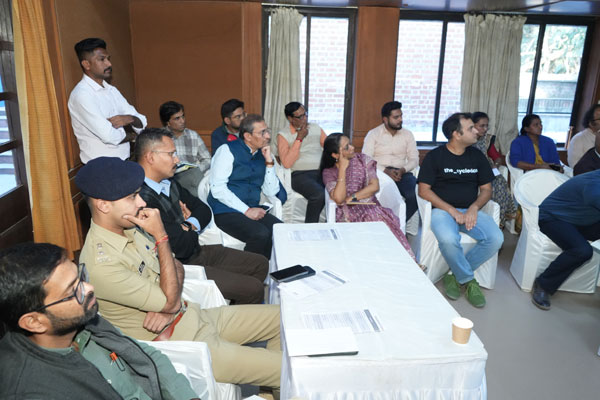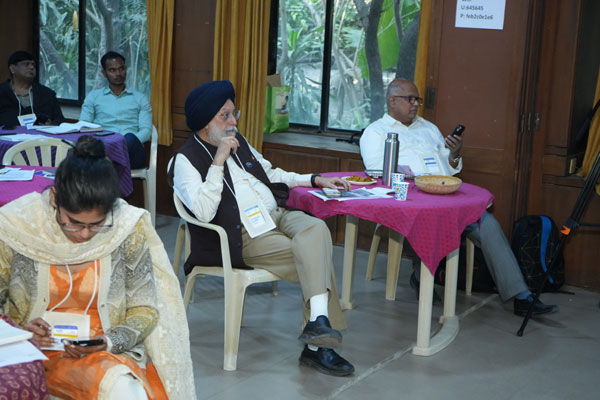This session delved into the intricate relationship between investments, net-zero objectives, carbon credit mechanisms, and material circularity in the pursuit of sustainability. As industries and governments worldwide strive to meet their net-zero commitments, the need for sustainable financial mechanisms, policy innovations, and multi-stakeholder collaborations has become increasingly vital. The discussions in this session focused on how financial strategies and carbon markets can facilitate the transition towards a circular economy, ensuring optimal utilisation of resources while minimising environmental impacts.
Key themes included bridging financial gaps, leveraging carbon credits as an economic tool, integrating circular economy principles into business models, and fostering innovation in sustainability financing. The speakers and panellists shared their expertise on scalable financial solutions, technological advancements, and regulatory frameworks that can support material circularity and reduce carbon footprints.
This session also highlighted how corporate social responsibility (CSR) funds, venture capital, and government incentives can accelerate climate-positive investments. Case studies of successful businesses implementing carbon trading, circular material management, and low-carbon technology adoption were presented, providing actionable insights for stakeholders looking to align their business strategies with global sustainability goals.
.


Speakers
Sudhir Sinha,
Former CSR Head, Arcelor Mittal, New Delhi
Nitin Mishra,
Founder Director, Sustainovate Climate Solutions, New Delhi
Keshav Bhootda,
Founder & Director, CLIMETO, Indore